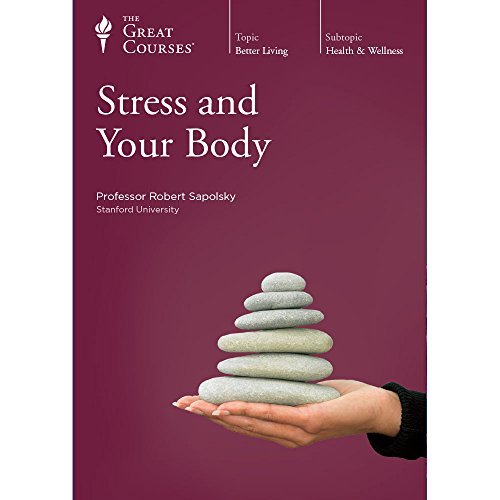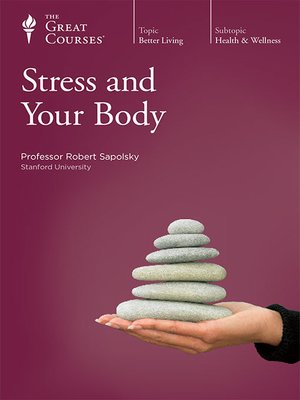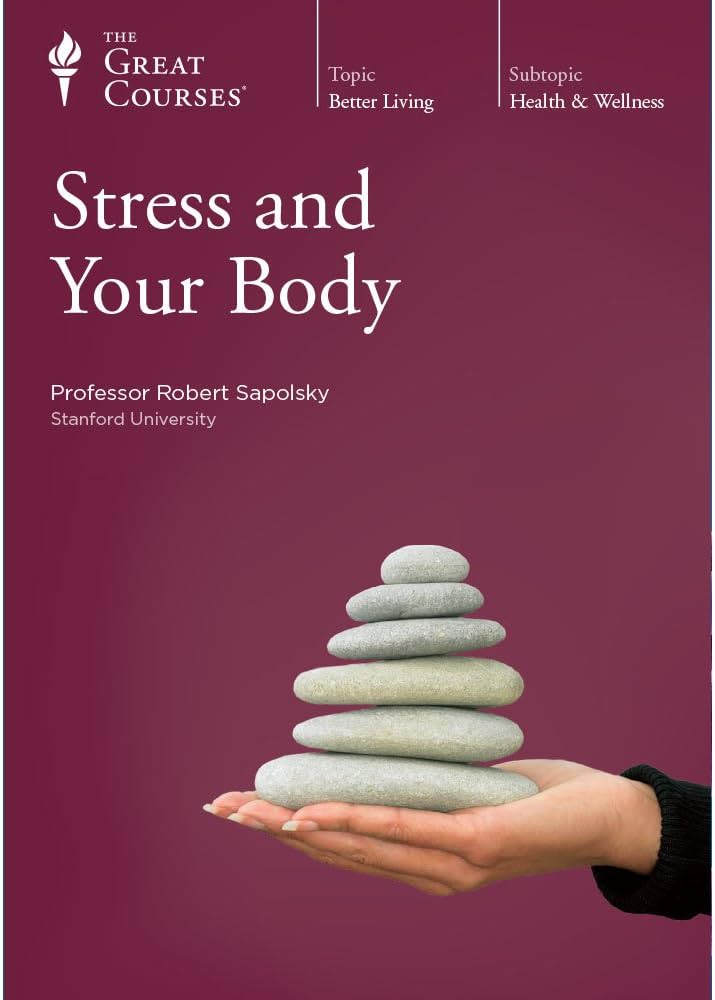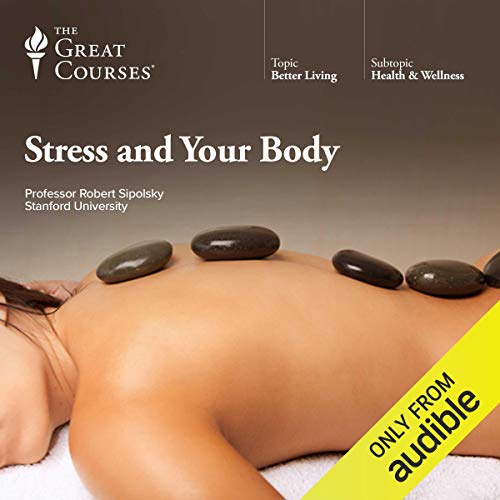Professor Robert Sapolsky’s audiobook “Stress And Your Body” explores the impact of stress on human physiology. He explains how chronic stress affects various bodily systems.
Stress is a natural response to challenges, but chronic stress can lead to severe health issues. In his audiobook, Professor Robert Sapolsky delves into the science behind stress and its effects on the body. He discusses how stress hormones like cortisol and adrenaline influence our physical and mental health.
The audiobook offers insights into the mechanisms of stress, its evolutionary origins, and practical advice for managing stress. By understanding the biological underpinnings of stress, listeners can better cope with its challenges and improve their overall well-being. This comprehensive guide is essential for anyone looking to understand stress and its profound effects on the body.
Unveiling Stress: Insights From Sapolsky’s Work
Professor Robert Sapolsky’s audiobook, “Stress and Your Body,” provides deep insights into the nature of stress. Sapolsky, a renowned neuroendocrinologist, unravels the complexities of stress and its impact on our bodies. His work helps us understand how stress, once a survival mechanism, has turned into a chronic issue affecting our health.
The Biology Of Stress
Stress begins with the brain’s perception of a threat. This triggers a cascade of biological responses. The hypothalamus sends a signal to the adrenal glands. These glands release cortisol, the primary stress hormone.
Cortisol prepares the body for a fight-or-flight response. It increases blood sugar and enhances brain function. However, prolonged exposure to cortisol can harm the body. It can lead to issues like high blood pressure and weakened immune function.
Stress: A Survival Mechanism Gone Awry
Stress was crucial for early humans. It helped them escape predators and survive. Today, our stress triggers are different. They include work deadlines and financial worries. These modern stressors can activate the same biological responses.
Chronic stress keeps the body in a constant state of alert. This can lead to long-term health problems. These include anxiety, depression, and cardiovascular diseases. Understanding this can help us find better ways to manage stress.
| Category | Effects |
|---|---|
| Short-term Stress | Improved focus, energy boost, heightened alertness |
| Long-term Stress | High blood pressure, weakened immune system, mental health issues |
Sapolsky’s work emphasizes the importance of recognizing stress as a significant health concern. By understanding the biology and impact of stress, we can take steps to mitigate its effects. This knowledge is crucial for improving our overall well-being.

Credit: www.goodreads.com
Key Concepts In ‘stress And Your Body’
In the audiobook ‘Stress And Your Body’, Professor Robert Sapolsky explores the science of stress. He delves into how stress affects our body and mind. This section highlights the key concepts from his audiobook, offering a deep understanding of stress and its impacts.
The Role Of Glucocorticoids
Glucocorticoids are stress hormones. They play a crucial role in the stress response. During stress, the adrenal glands release glucocorticoids into the bloodstream.
These hormones help the body manage stress. They increase glucose levels in the blood. This provides energy to deal with stressors.
Here are some key functions of glucocorticoids:
- Energy Regulation: They increase blood sugar levels.
- Immune Response: They modulate the immune system.
- Inflammation Control: They reduce inflammation.
Yet, high levels of glucocorticoids can be harmful. Chronic stress leads to prolonged hormone release. This can cause various health issues.
Stress Response: From Acute To Chronic
Stress response can be acute or chronic. Acute stress is short-term. It prepares the body to deal with immediate threats.
Here is a simple breakdown:
| Type of Stress | Duration | Effects |
|---|---|---|
| Acute Stress | Short-term | Boosts energy and focus |
| Chronic Stress | Long-term | Leads to health problems |
Acute stress can be beneficial. It enhances alertness and performance. But chronic stress is harmful.
Chronic stress keeps the body in a prolonged state of alert. This can lead to:
- Anxiety
- Depression
- Heart disease
- Weight gain
Understanding the difference between acute and chronic stress is crucial. It helps in managing stress effectively.
Applying Sapolsky’s Theories To Modern Life
Professor Robert Sapolsky’s audiobook, “Stress And Your Body,” offers invaluable insights. His theories can be applied to our daily lives. Understanding stress is crucial in today’s fast-paced world. Here, we explore ways to integrate Sapolsky’s teachings.
Managing Stress In A Busy World
Our lives are hectic. Stress can seem unavoidable. Sapolsky suggests practical techniques to manage stress. Here are some effective methods:
- Deep Breathing: Focus on your breath. Inhale deeply. Exhale slowly.
- Mindfulness: Stay present. Avoid thinking of past or future events.
- Physical Activity: Exercise regularly. It releases endorphins.
- Healthy Eating: Choose nutritious foods. Avoid excessive caffeine and sugar.
- Sleep: Ensure you get enough rest. Aim for 7-8 hours per night.
Lessons On Resilience And Health
Resilience helps us bounce back from challenges. Sapolsky emphasizes its importance. Building resilience can improve our health. Here are some lessons:
- Positive Relationships: Connect with friends and family. Social support is vital.
- Purpose: Find meaning in your activities. Engage in fulfilling tasks.
- Adaptability: Be open to change. Learn to adjust quickly.
- Self-Care: Prioritize your well-being. Take time for yourself.
- Growth Mindset: Embrace challenges. Learn from failures.
By applying these principles, we can navigate stress better. Sapolsky’s theories offer practical tools for a healthier, more resilient life.

Credit: www.overdrive.com

Credit: www.amazon.com
Conclusion
Understanding stress through Professor Robert Sapolsky’s audiobook offers valuable insights. His expertise helps us manage daily stress better. Listen to this audiobook to improve your well-being. Empower yourself with knowledge and take control of your stress. Give it a try and experience the benefits firsthand.



